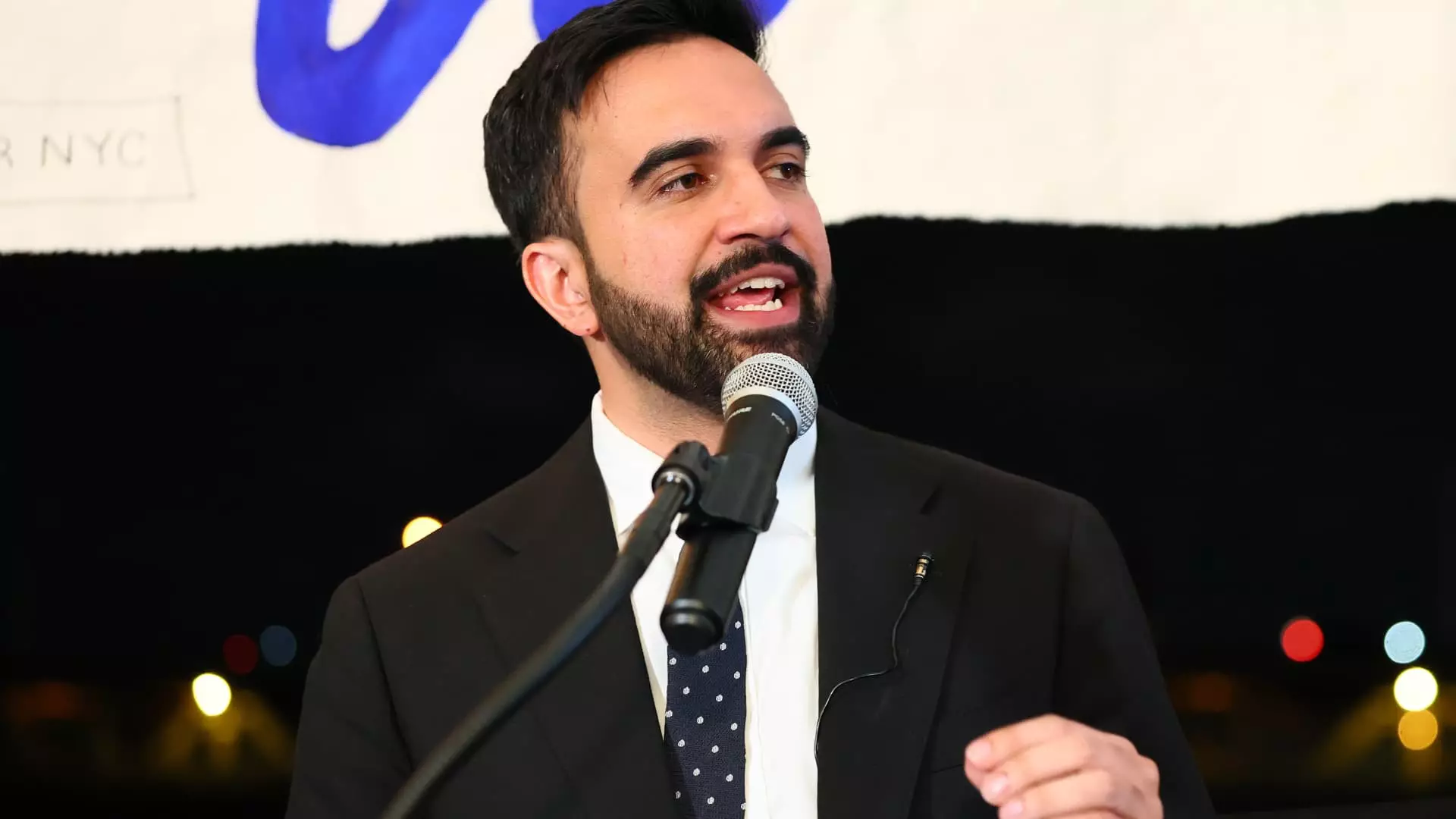The recent victory of Zohran Mamdani in the Democratic primary for New York City Mayor has sent shockwaves through the financial and real estate sectors. Shares of Flagstar Bank, a prominent player in the regional banking landscape, plummeted by 6% in response to Mamdani’s platform, which includes a promise to freeze rent increases on stabilized units. This could signify a troubling future not just for the bank but also for the broader economic climate of a city that thrives on its real estate market.
As a rebranded entity originating from New York Community Bancorp, Flagstar has already grappling with the ramifications of 2024’s economic environment, characterized by volatile real estate markets and increased regulatory scrutiny. The projected financial distress could potentially complicate the bank’s operations, affecting their capacity to lend and strategically operate in an arena where real estate loans constitute a hefty portion of their portfolio.
The Rent Freeze: A Double-Edged Sword
Mamdani’s endorsement of freezing rent increases may resonate with many tenants facing soaring costs. However, it raises profound questions regarding the sustainability of multi-family rental properties and the banks that rely on them for stability. Expert analyses estimate that between $11 billion and $18 billion of Flagstar’s loan exposure lies in multi-family properties impacted by New York’s stringent rent regulations. While some analysts maintain that the proposed rent freeze could be manageable in the short term, longer-term implications could force the bank to reassess its loan loss reserves, throwing a wrench in their operational strategy.
This scenario lays bare a disturbing reality: when political aspirations collide with economic consequences, the fallout can be staggering. The major risk rests not simply in policy shifts but in the potential destabilization of investor confidence—something that can snowball quickly in a market as dynamic as New York’s.
Office Properties Under Siege
It’s not just Flagstar that’s feeling the heat. Other office-focused real estate companies, such as SL Green Realty and Vornado Realty Trust, have also experienced a dip in their share prices, threatening the viability of their business models. These declines reflect a broader wariness about the sustainability of real estate investments in a city poised for a significant policy overhaul.
Therein lies an important argument: while social justice efforts such as ensuring affordable housing should be valued, they must occur in a landscape that considers the realities of business health. Policies that are overly stringent can yield unintended consequences, creating a landscape where investment stagnates and market throughput declines.
Higher Taxes and Regulatory Control
Adding further pressure, Mamdani has suggested raising corporate tax rates—an endeavor that, while appealing in theory, lacks practical power within a mayoral role. This disconnect between political promises versus actionable governance showcases a worrying trend: forms of governance that fail to assess their impact on the business climate. The mayor’s ability to influence tax policy is limited; nonetheless, signaling intentions can send ripple effects through investor confidence and market stability.
The ramifications are clear: aggressive taxation and rent freezes could expand New York’s already significant challenges regarding business attraction and retention. Companies may hesitate to expand their operations in an environment fraught with regulatory risks, thereby potentially siphoning jobs and talent from an economy that desperately needs them.
While new political leadership often comes with progressive ideals, the balance between necessary reforms and damaging economic consequences cannot afford to tip unfavorably. In locking horns with the fiscal realities of urban governance, Mamdani risks overshadowing public good with economic disenfranchisement, a win that could lead to broader socio-economic instability.
Ultimately, as New Yorkers await the final outcomes in the upcoming general election, policymakers and residents alike should brace for turbulence ahead—not just for the city’s once-mighty financial sector but for the livelihoods that rest on this delicate balance of governance and profitability.

